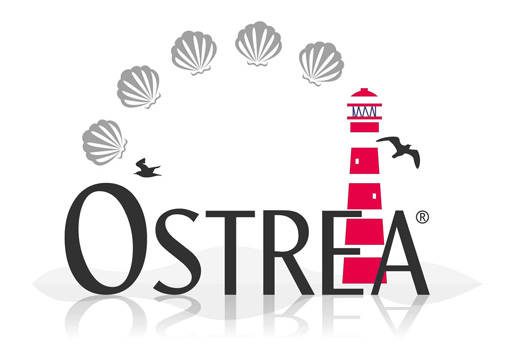Rental Conditions Ostrea
Below you will find the Ostrea Rental Conditions that apply when you rent an accommodation through Ostrea. We have provided a translation for your convenience, but only the original Dutch text is legally binding. If you have any questions or comments, please do not hesitate to contact us.
Article 1. Advance payment.
From the moment this rental agreement is concluded, the Tenant will pay the Landlord an advance payment of at least 50% of the agreed rent. The advance payment is a prepayment on the rent and will therefore be deducted from the agreed rent in the final settlement. The remaining amount of the rent will be paid within the period stated on the rental agreement.
Article 2. Agreement.
This agreement is concluded between the Lessor/Landlord and the Tenant/Lessee. At the very moment the Tenant/Lessee gives the booking verbally to the Lessor/Landlord or at the time that the Tenant/Lessee provides the booking order to the Lessor/Landlord in a digital manner, this rental agreement has actually been concluded between the Tenant/Lessee and the Lessor/Landlord, resulting in a rental relationship between the Tenant/Lessee and the Lessor/Landlord; from that moment on the Tenant/Lessee is bound by this rental agreement. The Lessor/Landlord is bound by this agreement after receipt of the advance payment. Any digital or written confirmation from the Lessor/Landlord to the Tenant/Lessee only serves to clarify what has been agreed. If the confirmation contains inaccuracies, the Tenant/Lessee must report this to the Lessor/Landlord within two working days after the reservation. The Lessor/Landlord is entitled to refuse a booking from the Tenant/Lessee due to the (youthful) age and the size of a group of Tenant/Lessees. The legal right of withdrawal (cooling-off period) does not apply to this agreement.
Article 3. Delivery.
The Lessor/Landlord undertakes to deliver the rented property clean and in good condition to the Lessee/Tenant at the agreed time.
Article 4. Viewing.
The Lessor/Landlord may view the rented property at all reasonable times or have it viewed by prospective Tenants/Lessees.
Article 5. Furnishing.
The Landlord/Lessor may not make any changes to the furnishing and equipment of the rented rooms after receiving the advance payment.
Article 6. Third parties.
The Lessee/Tenant may not hand over the rented property to third parties for rent or use, nor allow more persons to stay overnight in it than agreed in this contract, unless with the written permission of the Lessor/Landlord. If the stated maximum number of persons is exceeded (without permission), the agreement is considered to have been dissolved.
Article 7. Inhabit.
The Lessee/Tenant will live in the rented property neatly and cleanly with due observance of the rules of procedure that apply to the rented property and / or the rules of procedure of the recreation area on which the rented property is located; In doing so, he undertakes to compensate all damage - with the exception of the dangers of fire - caused by his actions or negligence to the rented object, the furnishings, the household effects or otherwise. This also applies to the loss of any part of the rented property, the furnishings or household effects.
Article 8. Return.
At the end of the rental period, the Lessee/Tenant undertakes to deliver the rented property with the inventory contained therein clean and in good condition.
Article 9. Smoking and pets.
Pets and smoking are not allowed in the rented property, unless with written permission from the Lessor/Landlord.
Article 10. Holiday accommodation.
The Lessee/Tenant will only use the rented as a holiday residence. Exercising a profession or business in the holiday residence is prohibited.
Article 11. Devices.
It is forbidden to use appliances other than those fitted in the rental object by the Lessor/Landlord for kitchen or washing purposes.
Article 12. Regulations.
The Lessee/Tenant and all fellow travelers must adhere to the rules established for the rented property, laid down in house rules and / or rules of procedure. These regulations can be found in the rented property. In case of violation of the regulations and / or non-compliance with the instructions of the Lessor/Landlord, the Lessor/Landlord has the right to immediately remove the Lessee/Tenant from the rented property, without any refund of the rent or part thereof.
Article 13. Nuisance.
The Lessee/Tenant is not allowed to cause nuisance to the surroundings by making music or noise.
Article 14. Key.
The rented property is made available to the Lessee/Tenant by handing over the house keys.
Article 15. Arrival.
The rented object must be occupied at the time indicated by the Lessor/Landlord on the day of arrival. Lessees/Tenants who do not (cannot) arrive at their holiday address on time are obliged to notify the Lessor/Landlord of this in good time, so that an appointment can be made about receiving the key to the rented property.
Article 16. Inventory.
The tenant is deemed to have accepted the rented property with the inventory contained therein in accordance with the inventory list present in the rented property, unless he has protested with the lessor within four hours of moving into the rental object. If so desired, the lessor is obliged to make a note on the original lease agreement at the end of the rental period that the rental object with the inventory contained therein has been made available to the lessor in accordance with the inventory list present in the rental object.
Article 17. Expense.
The additional costs must be agreed in advance between the Lessee/Tenant and the Lessor/Landlord and stated on the rental contract.
Article 18. Liability.
The rented object is rented out to the tenant by the landlord/lessor in the name of and at the expense and risk of the owner. As a result, the landlord/lessor is not a party in disputes regarding liability between the tenant and the owner. Landlord/lessor and owner are not liable for the consequences of theft, damage to property of the tenant or accidents, except in the case of fault on the part of the owner. In that case, however, the owner will never be obliged to compensate more costs or damages than for which normal third-party insurance would provide cover under these circumstances.
Article 19. Dissolution.
The lessor is entitled to consider this contract as dissolved without notice of default or intervention of the court being required if:
a) The full rent has not been paid at the start of the rental period.
b) The tenant leaves the rented property prematurely.
c) The tenant fails to move into the rented property on the day on which the rental period commences before 5.00 pm, without having received a written, telephone, telegraphic or electronic message that he will move into the rented property later during the rental period.
d) The tenant does not properly comply with the obligations under this agreement and / or the rules of procedure.
Without prejudice to the tenant's liability for the full rent in the cases referred to under a, b, c and d, the landlord/lessor is obliged - in order to limit the damage that arises in those cases - to try to rent out the object to another person for the time during which it is not used by the tenant; the amount received on that account will be deducted from the rent owed by the tenant, minus the service costs and an amount of € 19.00 in administration costs. This article also applies if the tenant is prevented from using the rented property due to personal or other circumstances.
Article 20. Cancellation.
If, for whatever reason, the tenant cancels a lease that has been entered into, or makes no or only partial use of his rights arising from the agreement without express cancellation, he will forfeit compensation on behalf of the lessor.
This compensation amounts to:
15% of the rent if canceled up to five months before arrival.
50% of the rent if canceled within five to three months before arrival.
75% of the rent if canceled within three months to six weeks before arrival.
100% of the rent in case of cancellation within six weeks before arrival or in the event of no-show starting from the day of arrival.
If the rented property can still be rented out for the same period, only the rent minus the service costs and minus € 19.00 administration costs will be reimbursed.
We recommend that you take out cancellation insurance.
Article 21. Disputes.
Dutch law is applicable to all disputes relating to the agreement. Only the Dutch court has jurisdiction to hear these disputes. Disputes between the tenant and the landlord/lessor about the formation and implementation of the agreement to which these terms and conditions apply can be brought before the court by both the tenant and the landlord/lessor. A dispute will only be dealt with if the tenant has submitted the complaint to the landlord/lessor in writing within two weeks after it arose. Thereafter, the tenant must bring the dispute to the court in writing no later than two months after the tenant has submitted the complaint to the landlord/lessor, stating the names and addresses of the tenant and landlord/lessor and a clear description of the dispute and the claim.
Article 22. Acceptance.
By means of the realization of this agreement as described in "Article 2. Agreement", the tenant also agrees to these rental conditions and the general terms and conditions of the lessor which can be found on the website of the lessor (https://ostrea.net) and at the Chamber of Commerce in Leeuwarden under registration number 56508891. A copy will be sent free of charge upon request.
Article 23. Consent.
If the tenant also participates in the cancellation fund, the tenant also agrees to the conditions for cancellation by entering into this agreement. The conditions for cancellation will be sent with the booking confirmation when this is concluded (if the booking confirmation is sent by post) and can also be found on the lessor's website (https://ostrea.net).
Article 24. Translation.
This is a translation, without obligation on our part, from the Dutch original, which is only made available for the convenience of and information to our foreign customers. In the event of a dispute, the Dutch text will be legally binding.



